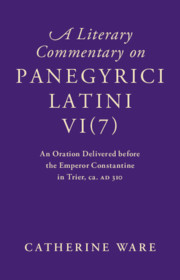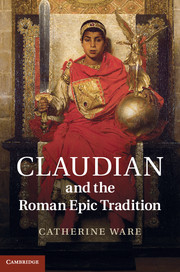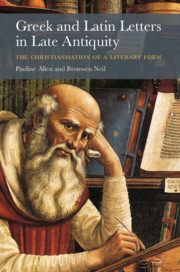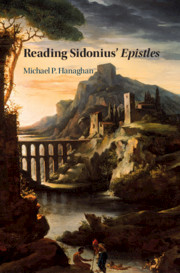A Literary Commentary on Panegyrici Latini VI(7)
The oration presented in this volume is critical to our knowledge of Constantine's early career and covers Maximian's rebellion, Constantine's claim of descent from Claudius II and his vision of Apollo. Written in AD 310, two years before Constantine's capture of Rome and his acceptance of Christianity, the speech gives a unique insight into the evolution of an imperial persona. This commentary examines the literary context of the panegyric and the role of the classical literary and rhetorical tradition in the recreation of Constantine's image. From the outset, the orator praises Constantine as separate from the imperial college: a deus praesens, god manifest, to the people of Gaul. He uses Lucan and Caesar to link Maximian's bid for power with the civil war between Caesar and Pompey while Vergilian allusion associates Constantine with Augustus.
- Provides full commentary on the speech, examining in detail the presentation of key events
- Illustrates the continuing importance of the classical tradition in late antique Gaul, the role of rhetoric, the knowledge of earlier authors and the use of allusion and intertextuality
- Places the speech in the context of the corpus as a whole, showing how the orator uses earlier speeches to shape the persona of Constantine
Reviews & endorsements
'For those interested in introducing students to the considerable joys of Late Roman Latin, or in understanding for themselves the considerable richness and texture of the 'vapid and turgid' panegyrics of the fourth century, this work can only be recommended.' Adrastos Omissi, Plekos
'… a splendid contribution … The work is a milestone in the literary study of late Latin prose.' Geoffrey Harrison, Bryn Mawr Classical Review
Product details
December 2020Hardback
9781107123694
406 pages
224 × 148 × 25 mm
0.62kg
Available
Table of Contents
- Introduction
- Text and Translation
- Part I: The Panegyrici Latini
- Part II: PL VI(7).





